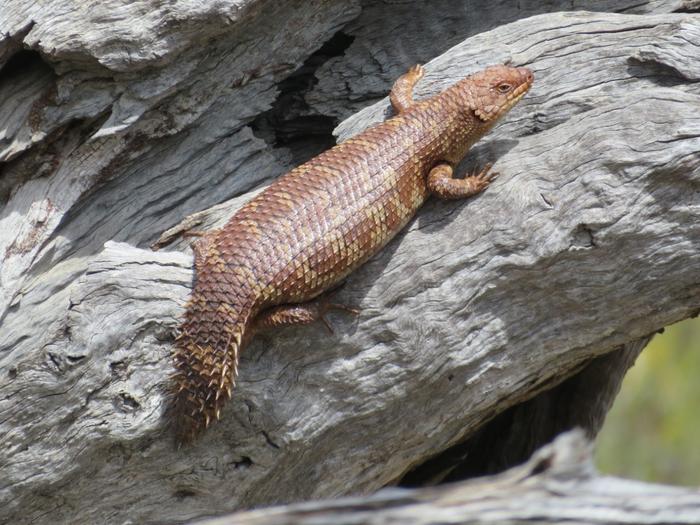A recent discovery by researchers at Curtin University has shed light on a potential new threat to the endangered western spiny-tailed skink. The chance finding of a dead spotted mulga snake with a partially digested pygmy spiny-tailed skink in its stomach has raised concerns about the vulnerability of the similar-looking juvenile western spiny-tailed skinks.
The spotted mulga snake and the pygmy and western spiny-tailed skinks are all found in the Mid-West region of Western Australia, approximately 300km east of Geraldton. The snake, likely killed by a vehicle, had consumed a pygmy spiny-tailed skink, which closely resembles the baby western spiny-tailed skinks in both appearance and behavior.
Dr Holly Bradley, lead researcher from Curtin’s School of Molecular and Life Sciences, emphasized the importance of this discovery, stating that it points to the need for further research to assess and mitigate potential threats to these reptiles. She also highlighted the significant gap in understanding the ecology of Australia’s diverse reptile population, especially in remote and difficult-to-access areas.
The western spiny-tailed skink is classified as an endangered species, and the identification of a new potential predator is crucial for its conservation and management. Dr Bradley believes that understanding predator-prey dynamics can be useful for effective conservation efforts and can help ensure the survival of native reptilian species.
Australia is known for its rich biodiversity of reptiles, but much remains unknown about the native snakes and lizards. This research, published in the journal Australian Zoologist, represents an improvement in the understanding of Australian reptile ecology and can better inform conservation efforts.
#ReptileConservation
#AustralianWildlife
#EndangeredSpecies
#PredatorPreyDynamics

